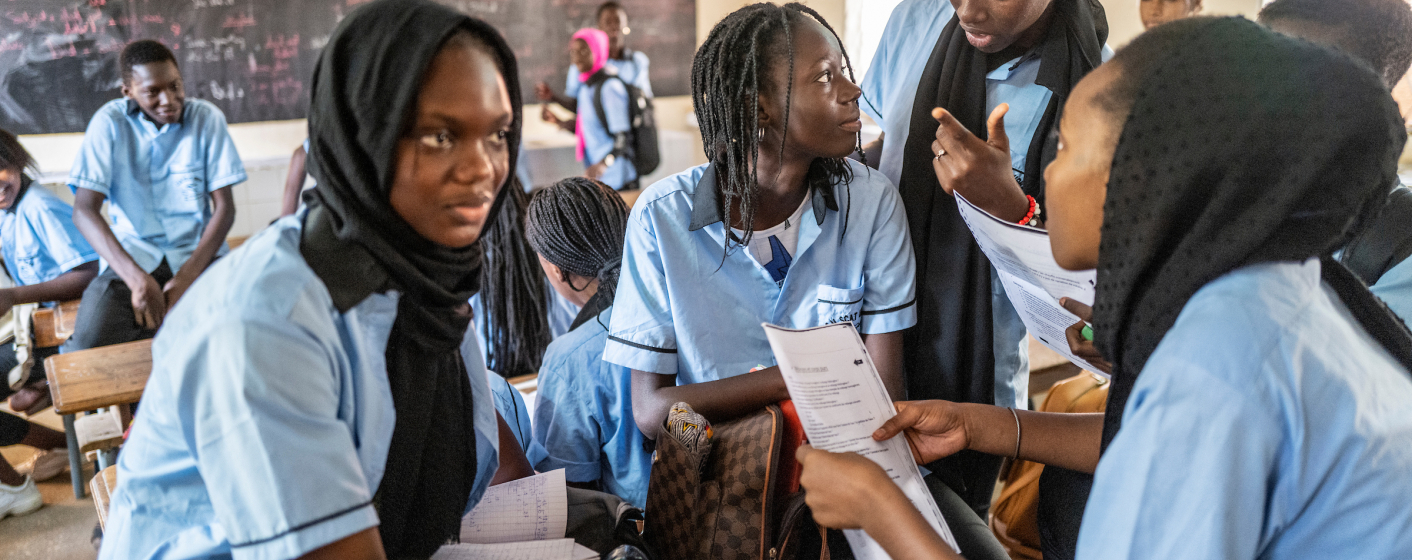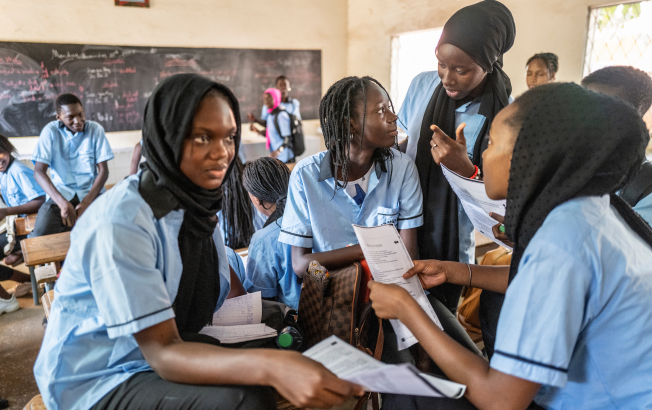Education planners share what being gender responsive means in eye-opening short course
More than 45 education professionals from 20 English-speaking African countries completed the first English edition of IIEP’s Short Course on Gender Responsive Educational Planning. Several of the participants, of which two-thirds were women, said they hadn’t realised the scale of gender issues in their home countries before participating.
Worldwide, many countries are falling short of the Education 2030 targets related to gender equality in education. Strengthening capacities in gender responsive sector planning is, therefore, a key component to achieving equitable and inclusive quality education for all.
Through diverse and complementary regional and country-specific activities, the Gender at the Centre Initiative (GCI) course is the first step in building capacity and facilitating collaboration and discussion.
“In my country, the biggest challenge is the assumption that there are no gender issues,” said Miriam Maroba, deputy permanent secretary for policy development at the Ministry of Basic Education in Botswana. “The assumption is that as we offer the same to everyone, what would be the challenge really? But we have a very big challenge of girls dropping out of school at an early age. From the onset, you find that that disadvantages them,” she said.
Amon Zondera, a district school inspector from Uganda, had a similar impression after the 11-week short course. “This course has opened my eyes. It’s been an exciting exploratory moment of self-discovery. I used to think that things are OK. Whenever we talk about gender, gender disparity, gender inequality, gender empowerment, I would assume that we are on common ground. Not until I did this course, did I realize that things are really not OK,” said Zondera.
Entirely online, this training programme comprises three sequential modules. Through an online learning platform and regular remote live sessions, participants may exchange and learn from each other’s experiences and consolidate skills that they can use for gender mainstreaming.
“It was my first time doing a course online, so it was a real learning experience. I was able to interact with people from all over Africa and share ideas. We shared challenges. It was very interesting. But what I’ve taken away from this course is really a change of mindset,” said Zondera.


